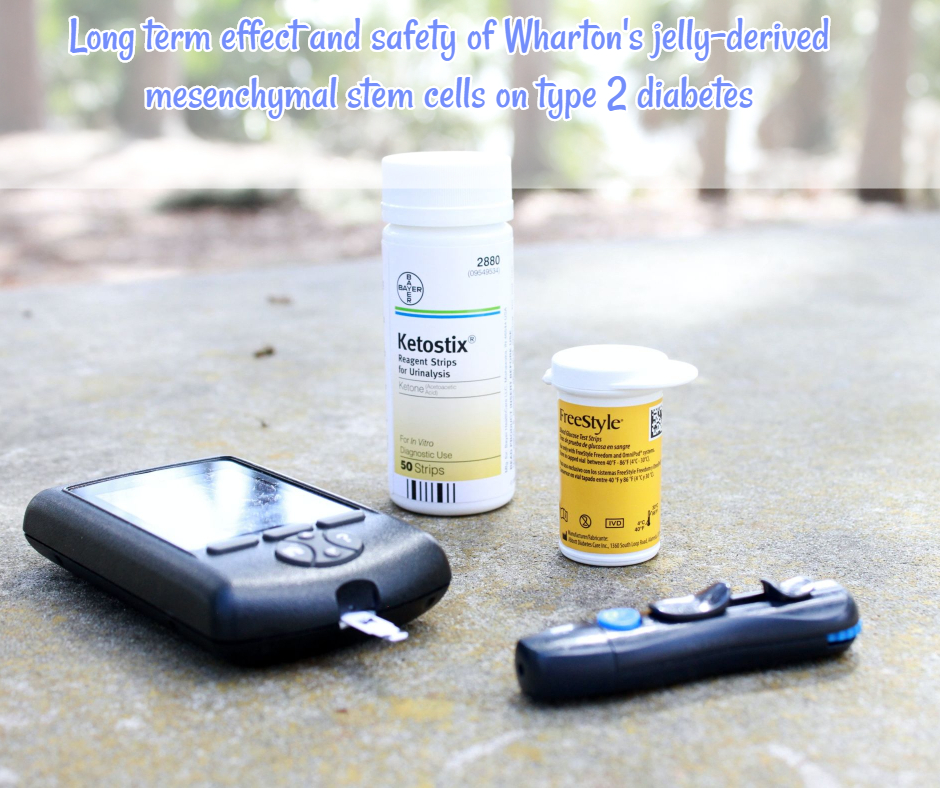Abstract. Cellular therapies offer novel opportunities for the treatment of type 2 diabetes mellitus (T2DM). The present study evaluated the long‑term efficacy and safety of infusion of Wharton’s jelly‑derived mesenchymal stem cells (WJ‑MSC) on T2DM. A total of 61 patients with T2DM were randomly divided into two groups on the basis of basal therapy; patients in group I were administered WJ‑MSC intravenous infusion twice, with a four‑week interval, and patients in group II were treated with normal saline as control. During the 36‑month follow‑up period, the occurrence of any adverse effects and the results of clinical and laboratory examinations were recorded and evaluated. The lack of acute or chronic adverse effects in group I was consistent with group II.. Blood glucose, glycosylated hemoglobin, C‑peptide, homeostasis model assessment of pancreatic islet β‑cell function and incidence of diabetic complications in group I were significantly improved, as compared with group II during the 36‑month follow‑up. The results of the present study demonstrated that infusion of WJ‑MSC improved the function of islet β‑cells and reduced the incidence of diabetic complications, although the precise mechanisms are yet to be elucidated. The infusion of WJ‑MSC may be an effective option for the treatment of patients with type 2 diabetes.
Long term effect and safety of Wharton's jelly-derived mesenchymal stem cells on type 2 diabetes